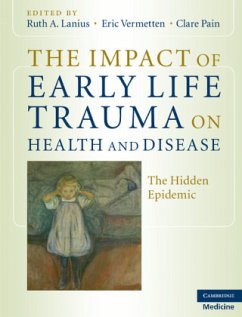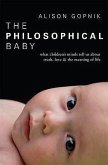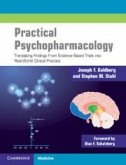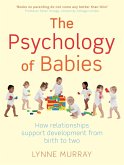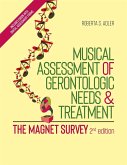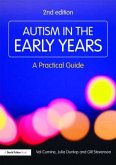The Impact of Early Life Trauma on Health and Disease
The Hidden Epidemic
Herausgegeben von Lanius, Ruth A.; Vermetten, Eric; Pain, Clare
The Impact of Early Life Trauma on Health and Disease
The Hidden Epidemic
Herausgegeben von Lanius, Ruth A.; Vermetten, Eric; Pain, Clare
- Gebundenes Buch
- Merkliste
- Auf die Merkliste
- Bewerten Bewerten
- Teilen
- Produkt teilen
- Produkterinnerung
- Produkterinnerung
To date, a comprehensive review of recent research on the effects of early and later life trauma is lacking. This book fills an obvious gap in academic and clinical literature by providing reviews which summarize and synthesize these findings. Essential reading for psychiatrists, clinical psychologists and child development specialists.
Andere Kunden interessierten sich auch für
![The Philosophical Baby: What Children's Minds Tell Us about Truth, Love & the Meaning of Life The Philosophical Baby: What Children's Minds Tell Us about Truth, Love & the Meaning of Life]() Alison GopnikThe Philosophical Baby: What Children's Minds Tell Us about Truth, Love & the Meaning of Life21,99 €
Alison GopnikThe Philosophical Baby: What Children's Minds Tell Us about Truth, Love & the Meaning of Life21,99 €![Bridging the Creative Arts Therapies and Arts in Health Bridging the Creative Arts Therapies and Arts in Health]() Bridging the Creative Arts Therapies and Arts in Health49,99 €
Bridging the Creative Arts Therapies and Arts in Health49,99 €![Practical Psychopharmacology Practical Psychopharmacology]() Joseph F. GoldbergPractical Psychopharmacology79,99 €
Joseph F. GoldbergPractical Psychopharmacology79,99 €![The Continuum Concept The Continuum Concept]() Jean LiedloffThe Continuum Concept11,99 €
Jean LiedloffThe Continuum Concept11,99 €![The Psychology of Babies The Psychology of Babies]() Lynne MurrayThe Psychology of Babies25,99 €
Lynne MurrayThe Psychology of Babies25,99 €![Musical Assessment of Gerontologic Needs and Treatment - The Magnet Survey Musical Assessment of Gerontologic Needs and Treatment - The Magnet Survey]() Roberta S. AdlerMusical Assessment of Gerontologic Needs and Treatment - The Magnet Survey49,99 €
Roberta S. AdlerMusical Assessment of Gerontologic Needs and Treatment - The Magnet Survey49,99 €![Autism in the Early Years Autism in the Early Years]() Val Cumine (UK Education Consultant)Autism in the Early Years49,99 €
Val Cumine (UK Education Consultant)Autism in the Early Years49,99 €-
-
-
To date, a comprehensive review of recent research on the effects of early and later life trauma is lacking. This book fills an obvious gap in academic and clinical literature by providing reviews which summarize and synthesize these findings. Essential reading for psychiatrists, clinical psychologists and child development specialists.
Hinweis: Dieser Artikel kann nur an eine deutsche Lieferadresse ausgeliefert werden.
Hinweis: Dieser Artikel kann nur an eine deutsche Lieferadresse ausgeliefert werden.
Produktdetails
- Produktdetails
- Cambridge Medicine
- Verlag: Cambridge University Press
- Seitenzahl: 329
- Erscheinungstermin: 5. August 2010
- Englisch
- Abmessung: 252mm x 196mm x 23mm
- Gewicht: 880g
- ISBN-13: 9780521880268
- ISBN-10: 0521880262
- Artikelnr.: 29728603
- Herstellerkennzeichnung
- Libri GmbH
- Europaallee 1
- 36244 Bad Hersfeld
- gpsr@libri.de
- Cambridge Medicine
- Verlag: Cambridge University Press
- Seitenzahl: 329
- Erscheinungstermin: 5. August 2010
- Englisch
- Abmessung: 252mm x 196mm x 23mm
- Gewicht: 880g
- ISBN-13: 9780521880268
- ISBN-10: 0521880262
- Artikelnr.: 29728603
- Herstellerkennzeichnung
- Libri GmbH
- Europaallee 1
- 36244 Bad Hersfeld
- gpsr@libri.de
Part I. Early Life Trauma, Impact of Health and Disease; Section 1. Childhood Trauma: Epidemiology and Historical Themes: 1. The history of early life trauma and abuse from the 1850s to the current time: how the past influences the present; 2. The epidemiology of early life trauma; 3. Historical themes in the study of recovered and false memories of trauma; 4. Early life trauma, later outcome: results from longitudinal studies and clinical observations; Synopsis; Section 2. The Effects of Life Trauma: Mental and Physical Health: 5. Attachment dysregulation as hidden trauma in infancy; 6. Towards a developmental trauma in infancy, early stress, maternal buffering, and psychiatric morbidity in young adulthood; 7. Complex adult sequelae of early life exposure to psychological trauma; 8. The relationship of adverse childhood experiences to adult health, well being, social function and health care; Synopsis; Part II. Biological Approaches to Early Life Trauma; Section 3. The Impact of Early Life Trauma: Psychobiological Sequelae in Children: 9. Translational studies of the effects of early life stress; 10. Lateral asymmetries in infants' regulatory and communicative gestures; 11. Neurobiology of childhood trauma and adversity; 12. Neurobiology of neglect; 13. Early life trauma as a risk factor for disease in adulthood; Synopsis; Section 4. The Impact of Childhood Trauma: Psychobiological Sequelae in Adults: 14. Early life stress and psychiatric risk/resilience: the importance of a developmental neurobiological model in understanding gene by environment interactions; 15. Neuroendocrine effects of early life trauma; 16. Long lasting effects of early life trauma on neurobiological circuits; 17. Biological framework for early life related traumatic dissociation; 18. The role of resilience in early life trauma; Synopsis; Part III. Clinical Perspectives, Assessment and Treatment of Trauma Spectrum Disorders; Section 5. Assessment on the Impact of Early Life Trauma: Clinical Science and Societal Effects: 19. Assessment of early- and mid-childhood trauma in adults; 20. Memory and trauma: examining disruptions in implicit, explicit and autobiographical memory; 21. Scientific progress and methodological issues in the study of recovered and false memories of trauma; 22. The psychosocial consequences of organized violence in children; Synopsis; Section 6. Strategies to Reduce Impact: 23. The role of mentalizing in treating attachment trauma; 24. Pragmatic approaches to stage oriented treatment for complex post traumatic stress and dissociative disorders; 25. Cognitive behavioral treatments; 26. Emotions and emotion regulation in the process of trauma recovery: implications for the treatment of post traumatic stress disorder; 27. Psychodynamic psychotherapy: adaptations for the treatment of patients with chronic complex PSTD; Synopsis; Epilogue; Index.
Part I. Early Life Trauma, Impact of Health and Disease; Section 1. Childhood Trauma: Epidemiology and Historical Themes: 1. The history of early life trauma and abuse from the 1850s to the current time: how the past influences the present; 2. The epidemiology of early life trauma; 3. Historical themes in the study of recovered and false memories of trauma; 4. Early life trauma, later outcome: results from longitudinal studies and clinical observations; Synopsis; Section 2. The Effects of Life Trauma: Mental and Physical Health: 5. Attachment dysregulation as hidden trauma in infancy; 6. Towards a developmental trauma in infancy, early stress, maternal buffering, and psychiatric morbidity in young adulthood; 7. Complex adult sequelae of early life exposure to psychological trauma; 8. The relationship of adverse childhood experiences to adult health, well being, social function and health care; Synopsis; Part II. Biological Approaches to Early Life Trauma; Section 3. The Impact of Early Life Trauma: Psychobiological Sequelae in Children: 9. Translational studies of the effects of early life stress; 10. Lateral asymmetries in infants' regulatory and communicative gestures; 11. Neurobiology of childhood trauma and adversity; 12. Neurobiology of neglect; 13. Early life trauma as a risk factor for disease in adulthood; Synopsis; Section 4. The Impact of Childhood Trauma: Psychobiological Sequelae in Adults: 14. Early life stress and psychiatric risk/resilience: the importance of a developmental neurobiological model in understanding gene by environment interactions; 15. Neuroendocrine effects of early life trauma; 16. Long lasting effects of early life trauma on neurobiological circuits; 17. Biological framework for early life related traumatic dissociation; 18. The role of resilience in early life trauma; Synopsis; Part III. Clinical Perspectives, Assessment and Treatment of Trauma Spectrum Disorders; Section 5. Assessment on the Impact of Early Life Trauma: Clinical Science and Societal Effects: 19. Assessment of early- and mid-childhood trauma in adults; 20. Memory and trauma: examining disruptions in implicit, explicit and autobiographical memory; 21. Scientific progress and methodological issues in the study of recovered and false memories of trauma; 22. The psychosocial consequences of organized violence in children; Synopsis; Section 6. Strategies to Reduce Impact: 23. The role of mentalizing in treating attachment trauma; 24. Pragmatic approaches to stage oriented treatment for complex post traumatic stress and dissociative disorders; 25. Cognitive behavioral treatments; 26. Emotions and emotion regulation in the process of trauma recovery: implications for the treatment of post traumatic stress disorder; 27. Psychodynamic psychotherapy: adaptations for the treatment of patients with chronic complex PSTD; Synopsis; Epilogue; Index.

